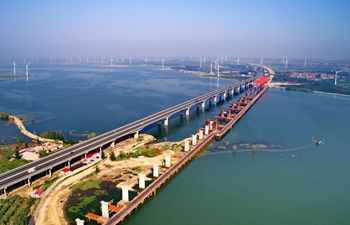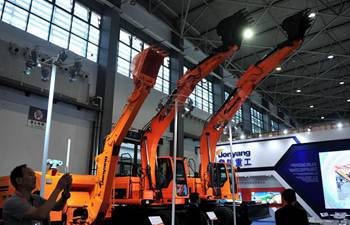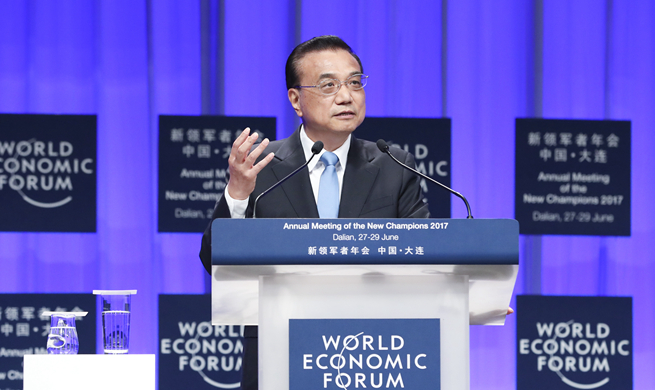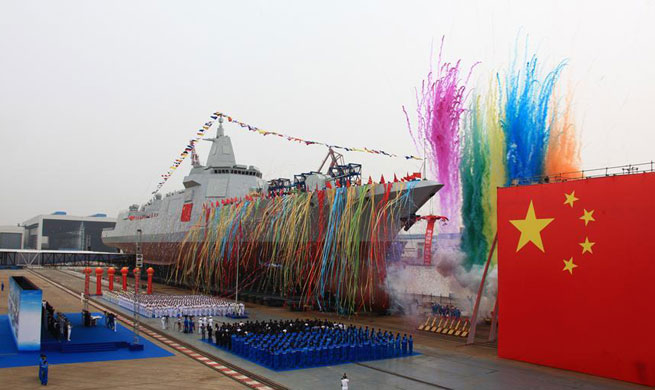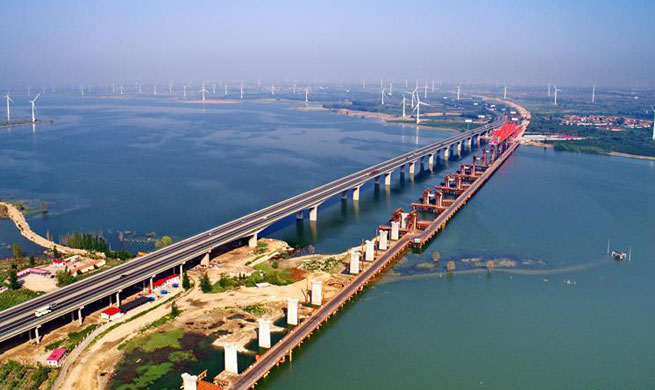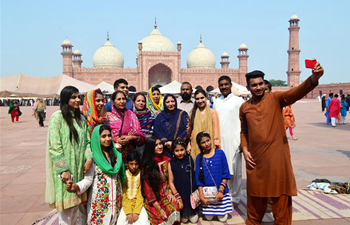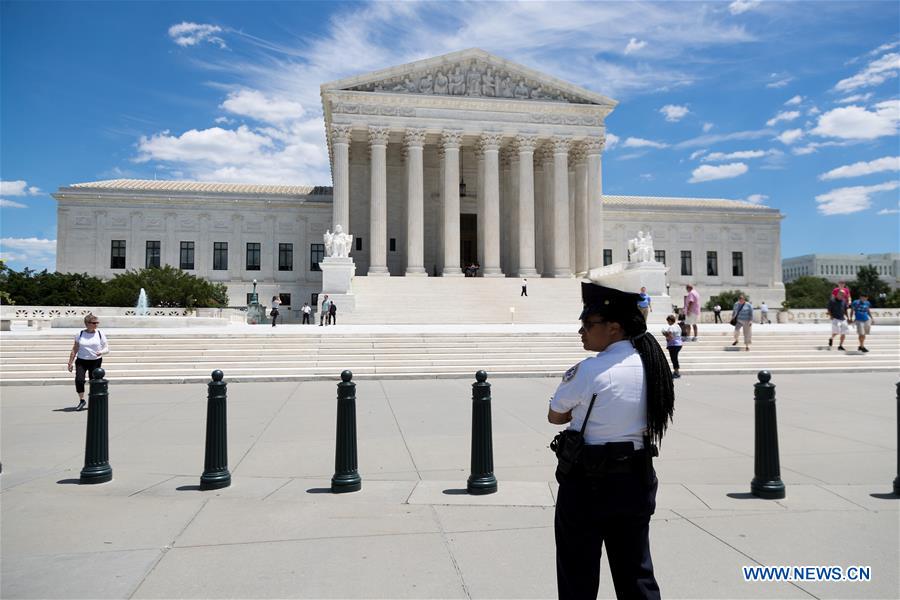
A U.S. Supreme Court police officer stands outside the Supreme Court in Washington D.C., the United States, on June 26, 2017. The U.S. Supreme Court on Monday announced that it has decided to allow President Donald Trump's controversial revised travel ban to go into effect in most instances and will review it in fall. (Xinhua/Ting Shen)
by Xinhua writer Liu Si
BEIJING, June 28 (Xinhua) -- The latest decision of the U.S. Supreme Court to allow President Donald Trump's revised travel ban unsurprisingly sparked widespread controversy, though it was hailed by Trump himself as a "clear victory for national security."
No matter what, the 9-0 vote by the court held on Monday was a clear sign that the United States may become more conservative in its immigration policy, or other domestic and foreign policies.
Five months into his term, Trump has altered the direction of U.S. foreign policy as he pursued his "America First" agenda. His philosophy and politics were given the name "Trumpism," which can be broadly defined as secure borders, economic nationalism and an America-first foreign policy.
Apart from its immigration policy, the administration's decision to withdraw from the Trans-Pacific Partnership and rescind its commitment to the Paris Climate Agreement has called into question America's role in the current world order.
Many experts who attended the sixth World Peace Forum held over the weekend in Beijing voiced concerns that Trump's policies, or "Trumpism," might undermine American soft power and bring a lot of uncertainties to the world order.
They also discussed how Trump's "America First" policy will change the global landscape and how China is able to step up its role to make greater contributions to the international community given that the United States under Trump's leadership is withdrawing from certain fields.
Daniel Russel, a senior fellow at the U.S. Asia Society Policy Institute and former U.S. assistant secretary of state for East Asian and Pacific Affairs, said that the Trump administration does not see the world as "a global community," but rather considers it as an arena for competition like the "Colosseum for gladiators." ' Noting that it "has departed from some traditions in the U.S. relationship with the rest of the world," Russel said the Trump administration prioritizes transactional bilateralism over multilateralism in trade and foreign relations, while being ambiguous about the country's commitment to treaty alliances, allies and security partners.
In terms of the global order, Russel considered Trump's policies as a risk that "the liability of the U.S.-led post-world war system is now being called into question."
"There's lot of uncertainties about the U.S. commitment to defending shared values and keeping the international systems moving forward," he said.
Wang Jisi, president of the Institute of International and Strategic Studies at China's Peking University, said that the U.S. influence would diminish along with its declining soft power under Trump's America-first foreign policy which may undermine U.S. alliances.
Michael Swaine, senior fellow at the Carnegie Endowment for International Peace, raised concerns about the U.S. leadership in the world under the Trump administration.
Considering Trump's viewpoint as "narrowly self-interested, cruelly transactional, non-strategic, and reactive," he said that the impact on the international order could be "disruptive and destabilizing" mainly because of uncertainty and unpredictability.
Speaking about China's contributions, Wang said that China has been playing a stronger role in the world.
For instance, China's persistent effort to promote economic globalization deserves applause from the international community, he said.
Tang Yongsheng, deputy director of the Institute for Strategic Studies and Teaching at China's National Defense University, said that in the face of uncertainties brought about by the Trump administration, there is a growing need to strengthen coordination between China and the United States on both bilateral and global issues, in order to ensure stability and prosperity in a rapidly changing world.





